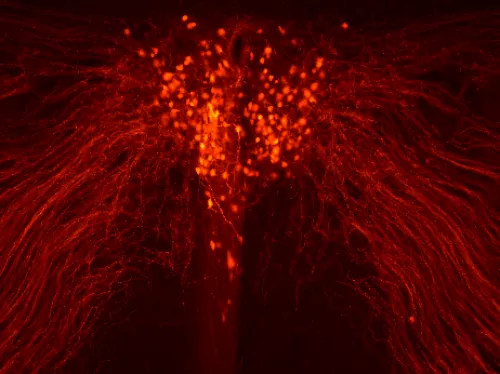We use socially monogamous prairie voles (Microtus ochrogaster) and other species to study the neural basis of social attachment behaviors.
We use molecular, genetic, and physiologic approaches in prairie voles and other species. Some of the questions that we are trying to tackle are:
- How do animals recognize, remember, and respond differently to specific individuals based on their past experience to build and maintain enduring relationships?
- How do the neural circuits that underlie social attachment develop?
- How do these circuits operate at different times in an animal’s life to regulate social behaviors?
- How do early experience or mutations in genes associated with psychiatric illnesses alter these circuits to change social attachment behaviors?
- How do genomic differences between species control development to influence social behaviors?
